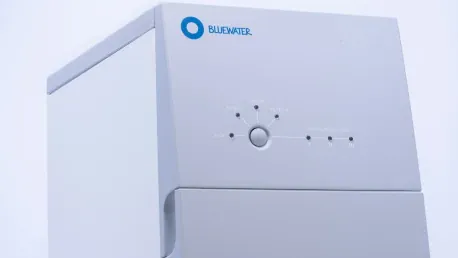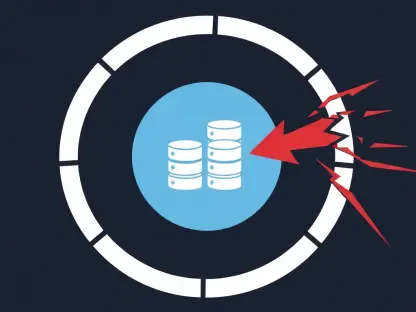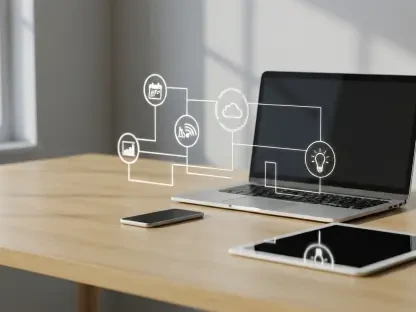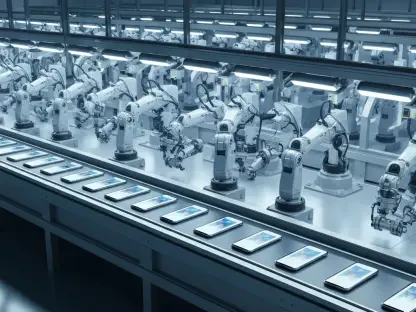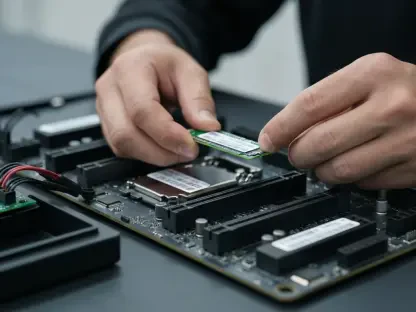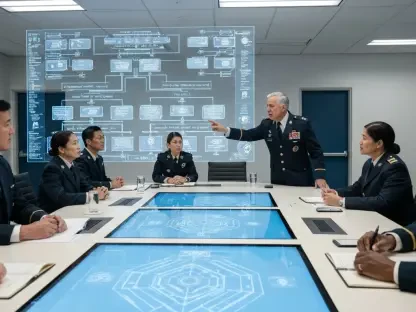The Birmingham Water Works (BWW) has embarked on a significant initiative to modernize its water billing system through a smart meter project aimed at addressing customer concerns and promoting water conservation. This automated meter-reading system is set to revolutionize how water consumption data is collected, transmitted, and analyzed, offering a more accurate and reliable billing process for the residents of Birmingham.
Advancements in Automated Meter Reading
Selection of Vendors and Implementation Planning
The first phase of the project involves the selection of vendors for smart meters and other essential system components. This process is crucial in ensuring that the hardware and software chosen will meet the specific needs of the BWW and its customers. E Source, a consulting firm with extensive experience in utility management, has been instrumental in guiding BWW through this selection process. With a $7.96 million consulting contract, E Source is assisting BWW in choosing the best hardware, software, and network infrastructure required for the Advanced Metering Infrastructure (AMI) system.
Once the vendors are selected, the project will move into the second phase, which focuses on detailed implementation planning. This phase involves setting up a project governance structure to oversee the rollout of the system, developing remediation plans for field operations, and establishing effective communication strategies with customers. Clear communication will be vital in ensuring that customers understand the benefits of the new system and how it will impact their water billing and consumption tracking.
System Integration and Software Upgrades
In preparation for the AMI implementation, a comprehensive needs assessment was completed, revealing that BWW’s existing SAP Customer Information System (CIS) software requires an upgrade. The upgrade is necessary to ensure compatibility with the new AMI system and to facilitate seamless integration. E Source will continue to assist BWW with this critical upgrade, focusing on aspects such as business design integration and enhancing customer portal accessibility.
The integration of upgraded software with the AMI system is expected to streamline many processes within BWW. This includes improving the accuracy of water usage data, reducing the need for estimated bills, and making real-time consumption data available to customers. These improvements are anticipated to enhance overall customer satisfaction by providing more accurate and timely billing information.
Project Governance and Customer Engagement
Developing Governance Structures
As part of the planning phase, BWW is working on establishing a robust governance structure for the project. This structure will ensure that the implementation of the automated meter-reading system proceeds smoothly and efficiently. The governance structure will likely include dedicated project management teams, clear roles and responsibilities for all stakeholders, and regular progress reviews to identify and address any issues promptly.
Creating a solid governance framework is essential for managing the complexity of the project and ensuring that all aspects are coordinated effectively. This framework will help to maintain the project’s timeline, budget, and quality standards, ensuring that the transition to the new system is as smooth as possible for both the utility and its customers.
Customer Communication and Support
Effective communication with customers is another key component of the project. As the new smart meters are rolled out, customers will need to understand the changes and how they will benefit from them. To achieve this, BWW plans to develop comprehensive communication plans to inform customers about the project, address their concerns, and provide support throughout the transition.
This communication strategy will likely include multiple channels such as informational mailers, community meetings, and an updated customer portal. By keeping customers informed and engaged, BWW aims to foster a positive perception of the new system and encourage customer participation in water conservation efforts. Providing timely information and support will be essential in achieving a smooth and successful transition to the automated meter-reading system.
Financial Planning and Meter Testing
Budget Allocation for Meter Purchase
BWW has allocated substantial funds for the rollout of the smart meter system, with the 2025 budget earmarking $10 million specifically for purchasing the new meters. This significant investment underscores the commitment of BWW to modernize its water billing infrastructure and address longstanding issues related to billing accuracy and customer service.
Budget allocation for smart meters is a critical step in ensuring the project’s financial feasibility and success. It will allow BWW to procure the best available technology, which in turn will enhance the reliability and efficiency of the water billing system. Proper financial planning and management are essential for the project to remain on track and within budget.
Testing and Finalizing Meter Choices
Before finalizing the meter choices, BWW is conducting extensive testing of various smart meter models. This phase is crucial in determining the most suitable meters for Birmingham’s specific needs and ensuring that the technology performs reliably under different conditions. The testing involves evaluating the meters’ accuracy, durability, and ease of integration with the AMI system.
Selecting the right meters is vital for the success of the automated meter-reading system. Accurate meter readings are the foundation of reliable billing and customer trust. By thoroughly testing and evaluating different meter options, BWW aims to ensure that the chosen meters will deliver the expected performance and benefits. This careful approach to selection and testing will help to mitigate potential issues and lay a solid foundation for a successful rollout.
Future Considerations and Outcomes
Long-term Benefits and Customer Experience
The long-term benefits of the smart meter project are far-reaching. Once fully implemented, the automated meter-reading system will not only improve billing accuracy but also enhance the overall customer experience. Customers will have the ability to track their water consumption in real time, detect leaks early, and manage their water usage more effectively. These features will empower customers to take proactive steps in conserving water and reducing their bills.
Enhanced customer experience and increased transparency are expected to foster greater customer trust and satisfaction. The availability of detailed consumption data will enable customers to make informed decisions about their water use, leading to more efficient and sustainable water management practices.
Ensuring Successful Implementation
The Birmingham Water Works (BWW) has initiated a groundbreaking project to upgrade its water billing system through the implementation of smart meters, a move designed to address customer concerns while simultaneously fostering water conservation efforts. This advanced automated meter-reading system is poised to transform the way water usage data is collected, transmitted, and analyzed. The new system promises to deliver a higher degree of accuracy and reliability in the billing process for Birmingham residents. With these smart meters, customers will benefit from more precise water usage reporting, which can lead to better water management and potential cost savings. Additionally, BWW’s smart meter initiative supports environmental sustainability by encouraging more mindful water consumption practices. This comprehensive overhaul reflects BWW’s commitment to modernizing its infrastructure and improving customer service by leveraging innovative technology to meet the growing demands and expectations of its community.
